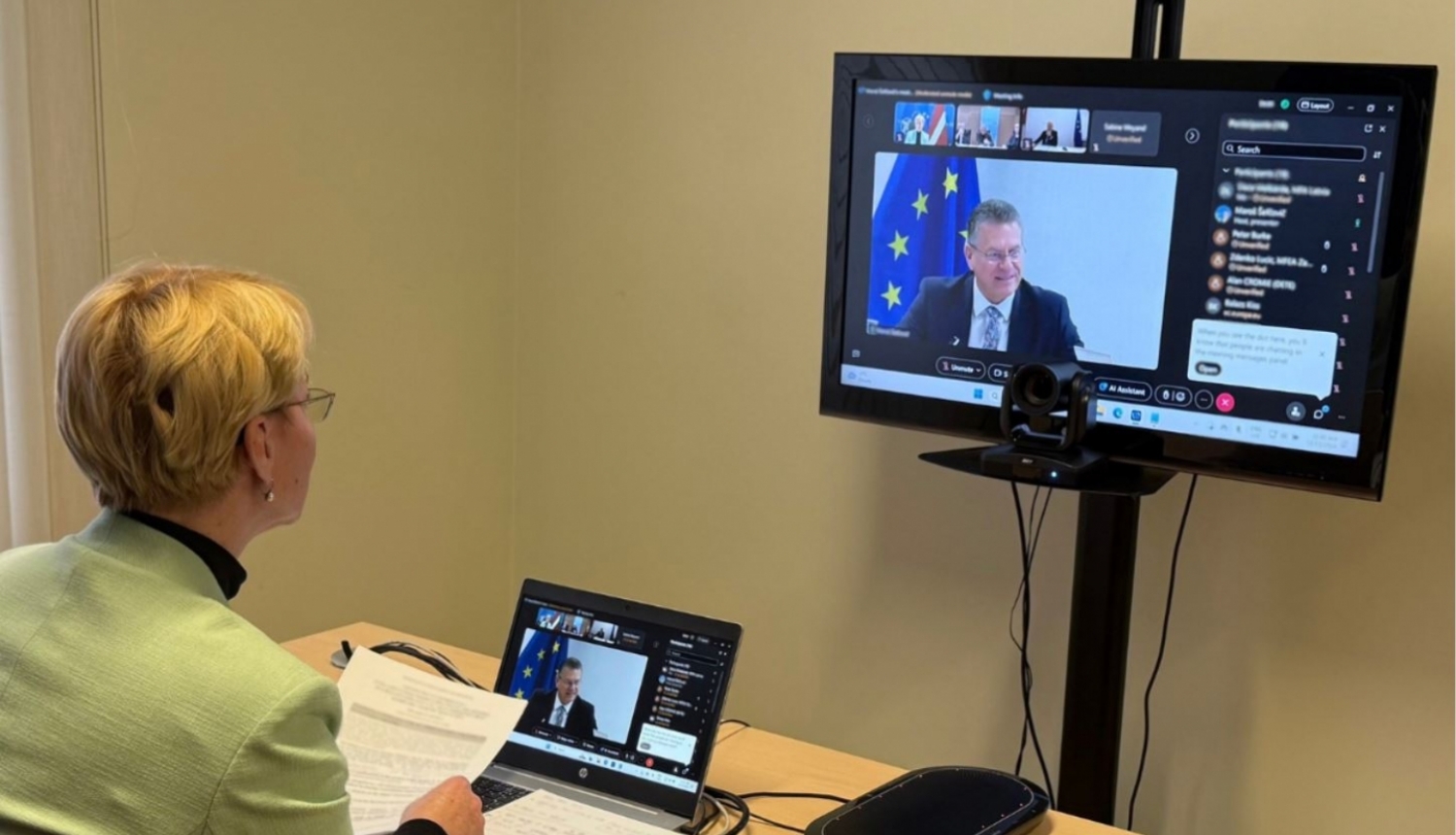On 13 December 2024, the Parliamentary Secretary of the Ministry of Foreign Affairs, Dace Melbārde, took part in an introductory meeting of the European Union (EU) Member States with the new Commissioner for Trade and Economic Security, Maroš Šefčovič. The conversation focused on the current matters of EU trade policy and economic security. The Parliamentary Secretary affirmed Latvia’s readiness to work closely with the new Trade Commissioner and the European Commission.
In a discussion on the priorities and development of EU trade policy, Dace Melbārde congratulated the European Commission on concluding negotiations for the EU-Mercosur Agreement on 6 December. Mercosur (Mercado Común del Sur), or the Southern Common Market, is the leading trading bloc in South America, its current full-fledged members being Brazil, Argentina, Uruguay and Paraguay. “This is a major strategic development in bilateral relations with the Latin American countries, which will offer EU entrepreneurs access to a new market. This agreement creates a market for more than 700 million people and will save EU companies EUR 4 billion annually in export taxes,” Dace Melbārde underlined.
The Parliamentary Secretary noted that the expansion of the EU’s network of trade agreements with trusted partners was already demonstrating a positive global impact. For example, EU exports of services to Korea have increased by 200% since 2010. Meanwhile, since 2016, when a trade agreement was concluded with Canada, exports of EU services have increased by 52% and of goods – by 64%. Security and defence needs should also be a priority during the European Commission’s next term in office, including through trade policy. Dace Melbārde called on the Trade Commissioner to actively continue broadening the network of EU trade agreements with Mexico, the Gulf States and the Indo-Pacific region.
Dace Melbārde also stressed that the EU-US trade cooperation should be further strengthened and expanded: “Latvia sees several vectors of potential cooperation with the US, both in trade and investment, as well as in economic security, energy and other areas.”
The Parliamentary Secretary thanked the European Commission for its current efforts on restricting trade with Russia and its co-aggressors, and she urged Commissioner Šefčovič to continue the work: “At this point in time, more needs to be done and we must act faster to reduce Russia’s ability to finance its hostilities in Ukraine, including through raising tariffs on as wide a range of Russian and Belarusian products as possible.”
Further information
- The EU’s external trade policy is the exclusive responsibility of the EU, with the European Commission developing trade legislation, negotiating and concluding international trade agreements.
- Facts, statistics etc. on Mercosur Agreement
- EU common trade policy (in Latvian)
- Baiba Braže: EU must seize very opportunity and use any instrument to reduce Russia’s budget revenues while protecting EU businesses
- On 1 December 2024, the new European Commission began its mandate for the 2024-2029 period.





